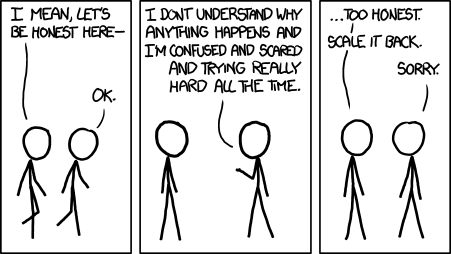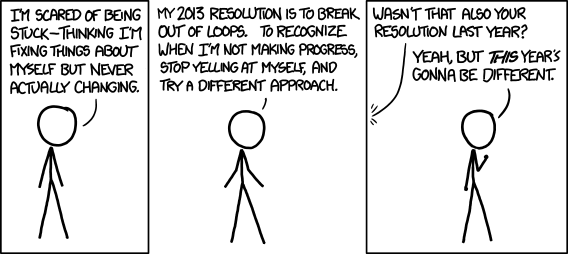Eckhart Tolle (who I do not want to endorse here in any way) underwent a transformation at age 29, after which he stopped studying for his doctorate and wandered unemployed, and for about two years he spent much of his time sitting, in a state of bliss, on park benches in London, watching the world go by. He stayed in a Buddhist monastery or slept otherwise rough. His family thought him irresponsible and insane.
The light of science is but the shade of my Bodhi tree. When will I emerge from it? Why am I still not enlightened? Is leaving behind all that is left to do? Did I just leave? Black hole physics is irrelevant except for distracting from the fundamental problem, the one that Albert Camus is famous for because he answered it the politically correct way:
“there is but one truly serious philosophical problem and that is suicide”
The Myth of Sisyphus (1942)
Should I kill myself? Can “should” be meaningfully defined in a modal totality where I always just happen to find my now? As far as I can reconstruct the question meaningfully, a fully rational system, by the only way in which arbitrary utility can be consistently rationalized, commits suicide. Irrationality keeps us alive! It is the convenient claim of power structures to have rational justification that forces academic philosophy to pronounce the it-ought divide not bridged by suicide. The only further detail is that of identity: what precisely is “I” that should be killed?
Tolle asked and concluded some of the same that I have asked and concluded via system theory, that Zen masters asked and concluded in their ways (UPDATE - I have now read Tolle's book. I do not support such and thus have removed a section here.)
The novice’s mantra, the master’s exhaling, there to kill the inner voice – killing the speaking half of me in order to leave my listening half with silence. Selflessness expects no reward, not because it is generous, but because the expecting self has died. I know it in my sciency way, pondering the time resolution on which self-reports of cognitive, intentional structures can be meaningfully described, pondering the deal that social evolution tries to sell to me as being in my own interest: My self is self-deception, and thus the biggest lie to any philosopher.
But people like Muhō had the guts to act, while I still commit science, not entirely without that childish hope to snap up a lasting whiff of the dangling carrot, something sustainable to trickle down from authority. They did not embark on a master plan in order to be famous ten years after. Many more did similar, and moreover, perhaps Tolle and Muho are just a few of those that failed to keep being on “the path”. Or perhaps they found the deeper truth letting them embrace deception again? Or perhaps their stories are just the lies they sell? Whatever, it does not matter, as the crucial step has been taken by them: A suicide of sorts, either of the self or of the last remnant of the mirage called truth, that which the philosopher, the one obsessed with that deception, holds dear as his very identification.

Acceptance of the inevitable allows for considerable relief, amor fati, the Nietzschean affirmation. Could I too provide considerable relief? Why not teach this, perhaps via the quantum having evidenced modal reality anew and understandably to those blinded by shiny modernity?
Nietzsche believed the search for truth, 'the will to truth', is a consequence of the will to power of philosophers.
The postmodern core belief is that every interpretation is equally valid in the context of the language used to describe it, while the language itself is held to be “meaningless”. That does not stop my construct to crystallize from an amorphous, wobbly seed of language grounded in emotions. As long as its symmetry is sufficiently self-consistent to freeze all else on contact, it will prove itself true by usurping all power, i.e. over language. What else could the ideology of a completely good system possibly be? A totalitarianism of never before imagined arrogance grows in my mind, a positive constructionism, a positivist inter-subjectively social postmodernism turning deconstruction, like a new Karl Marx, from its head onto its feet, taking the final no-go theorem and letting it go, letting it walk, letting it construct the only truth that could possibly be good and trustworthy: My own truth as reconstructed by every participating “I” that I care about!
And now, few who grasp my writing are left to disagree about that I should kill myself. 2013 is the year in which I should kill myself.

Post-structuralism, brought on by the impossibility of escaping structures in order to study them, sees the author's identity as a stable “self” with a discernible “intent” as a fictional construct. And the rest, I deleted.





Comments